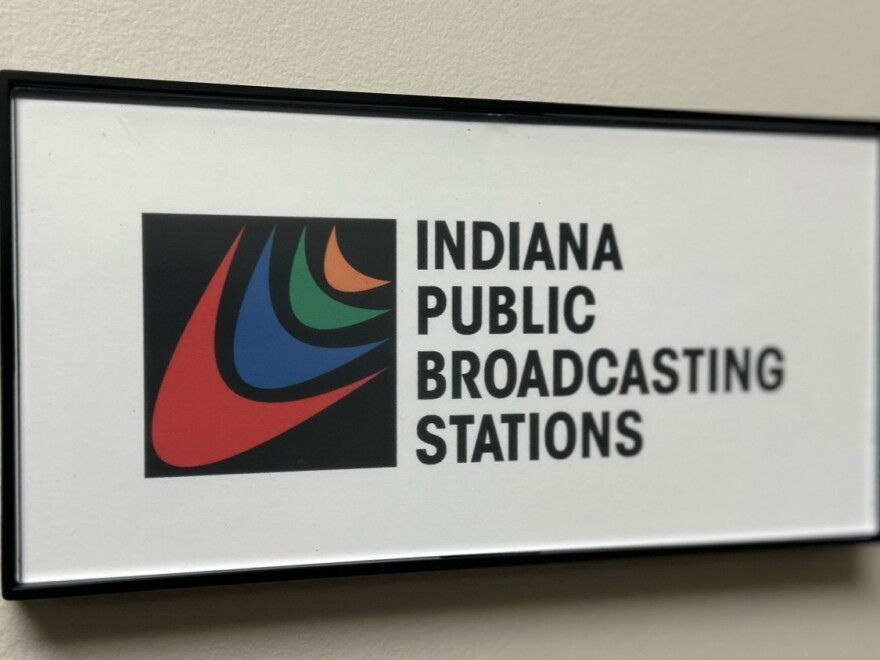Indiana’s network of 17 public media stations is facing steep financial challenges after Congress eliminated federal funding for the Corporation for Public Broadcasting, which distributes money to public television and radio stations across the country.
The federal cuts total up to $13 million from the Indiana stations, according to Mark Newman with Indiana Public Broadcasting Stations, Inc. (IPBS).
The cuts were driven by former President Donald Trump’s push to end what he called taxpayer support for politically biased media. They put the future of NPR, PBS and more than 1,500 local stations nationwide at risk.
The bill claws back $1.1 billion in funding that had been allocated for 2026 and 2027. NPR gets about 1% of its budget directly from the federal government, while around 15% of PBS’ budget comes from federal funding.
According to a WFYI analysis, several Indiana stations get over 30% of their funding from federal dollars:
- Ball State Public Media in Muncie receives about 45%
- WVUB/WVUT at Vincennes University receives about 38%
- WNIN in Evansville receives about 37%
- PBS Fort Wayne receives about 32%
Other Indiana stations are less dependent on federal support. WFYI in Indianapolis draws 11% of its budget from CPB.
Impact magnified by prior state cuts
Earlier this year, Indiana lawmakers eliminated $3.7 million in annual state funding for public media stations, which included a $590,000 hit to WFYI’s budget. Combined with the federal cuts, a few stations now face revenue losses topping 50% of their budgets.
Tim Black, the WNIN chief executive, told NPR the loss of federal funds would be "pretty darn close to being catastrophic” to the station’s operations.
Following lawmakers' decision to end state funding, Indiana stations decided to eliminate their statewide reporting team at the end of the year.
A state-wide response
IPBS Executive Director Mark Newman said each station will be impacted differently because of the wide range of sizes. Federal funds can help stations’ cover staffing, salaries, basic utilities, rent and fees to broadcast NPR and PBS content.
Newman said the future of public media in Indiana will likely look different than today.
“I think the idea of consolidation or shared services is a legitimate direction and it’s one we are exploring very, very seriously,” Newman told WFYI. “There has to be a solution in a new way forward that’s aggressive, that’s bold and that reshapes the way that we think about public broadcasting, public media, rather, and the way that we deliver it to the general public.”
How it happened
Late Thursday, the U.S. House passed the Senate version of the rescission bill 216-213, with two Republicans voting against it and no Democrats voting in favor. Earlier, the U.S. Senate passed the measure 51-to-48, largely along party lines. Indiana’s U.S. Sens. Jim Banks and Todd Young, both Republicans, supported the defunding.
The bill goes next to President Donald Trump for his signature.
Disclosure: This story was reported and written by WFYI managing editor Eric Weddle and WFYI Data Journalist Zak Cassel and edited by education reporter Dylan Peers McCoy. In following NPR’s protocol for reporting on itself, no WFYI or IPBS executive reviewed this story before it was posted publicly.
Editor's note: In instances where stations did not or said they could not provide budget data for WFYI to do the analysis, Katherine Arno — the Corporation for Public Broadcasting’s Vice President of Community Service Grants and Station Initiatives — suggested using specific total expense figures from 2024 station financial audits, which she shared with WFYI.
Copyright 2025 WFYI Public Media


